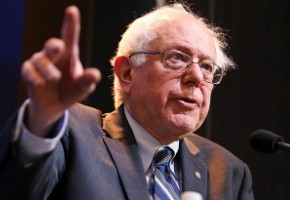Liberal messiah: If Sanders became president, what would change?

The campaign for the Democratic nomination for president began in earnest on July 1, when Vermont senator Bernie Sanders addressed a crowd of 10,000 in Madison, Wisconsin. Sanders had already drawn impressive crowds in Denver, Minneapolis, and elsewhere. But the Madison rally was the biggest event yet for any candidate in the 2016 field. The sheer size of the crowd made journalists covering the previously dreary Democratic primary contest sit up and take notice.
“Politics in a democratic society should not be complicated,” the candidate told the roaring crowd. “Politics is not a soap opera,” but rather “people coming together to make life better for our people.” A populist both in rhetoric and in his unassuming, somewhat shambolic self-presentation, Sanders showed why he has managed to pull ahead of Hillary Clinton in polls of early-voting Iowa and New Hampshire, and why he has filled arenas in urban centers and progressive strongholds around the country.
Sanders is running uphill against the neglect of major media and the hostility of the party’s officeholding and check-writing elite. But he has tapped into the latent enthusiasm of the progressive part—so far, the overwhelmingly white, college-educated progressive part—of the party’s base. His campaign’s unvarnished emphasis on economic inequality is no doubt part of his appeal. So are his ardently progressive positions on jobs, the minimum wage, and campaign finance.





